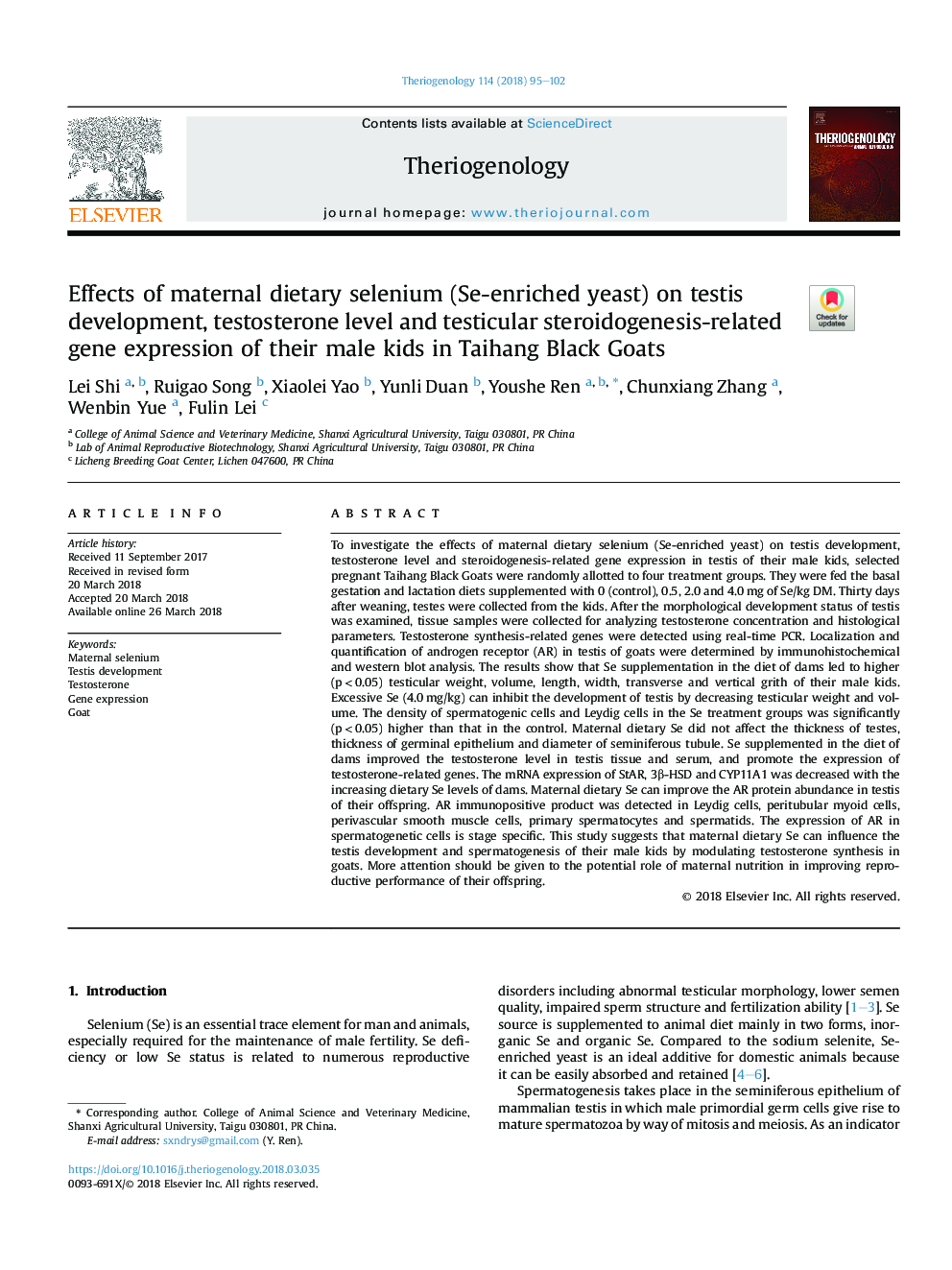| Article ID | Journal | Published Year | Pages | File Type |
|---|---|---|---|---|
| 8426865 | Theriogenology | 2018 | 8 Pages |
Abstract
To investigate the effects of maternal dietary selenium (Se-enriched yeast) on testis development, testosterone level and steroidogenesis-related gene expression in testis of their male kids, selected pregnant Taihang Black Goats were randomly allotted to four treatment groups. They were fed the basal gestation and lactation diets supplemented with 0 (control), 0.5, 2.0 and 4.0â¯mg of Se/kg DM. Thirty days after weaning, testes were collected from the kids. After the morphological development status of testis was examined, tissue samples were collected for analyzing testosterone concentration and histological parameters. Testosterone synthesis-related genes were detected using real-time PCR. Localization and quantification of androgen receptor (AR) in testis of goats were determined by immunohistochemical and western blot analysis. The results show that Se supplementation in the diet of dams led to higher (pâ¯<â¯0.05) testicular weight, volume, length, width, transverse and vertical grith of their male kids. Excessive Se (4.0â¯mg/kg) can inhibit the development of testis by decreasing testicular weight and volume. The density of spermatogenic cells and Leydig cells in the Se treatment groups was significantly (pâ¯<â¯0.05) higher than that in the control. Maternal dietary Se did not affect the thickness of testes, thickness of germinal epithelium and diameter of seminiferous tubule. Se supplemented in the diet of dams improved the testosterone level in testis tissue and serum, and promote the expression of testosterone-related genes. The mRNA expression of StAR, 3β-HSD and CYP11A1 was decreased with the increasing dietary Se levels of dams. Maternal dietary Se can improve the AR protein abundance in testis of their offspring. AR immunopositive product was detected in Leydig cells, peritubular myoid cells, perivascular smooth muscle cells, primary spermatocytes and spermatids. The expression of AR in spermatogenetic cells is stage specific. This study suggests that maternal dietary Se can influence the testis development and spermatogenesis of their male kids by modulating testosterone synthesis in goats. More attention should be given to the potential role of maternal nutrition in improving reproductive performance of their offspring.
Related Topics
Life Sciences
Agricultural and Biological Sciences
Animal Science and Zoology
Authors
Lei Shi, Ruigao Song, Xiaolei Yao, Yunli Duan, Youshe Ren, Chunxiang Zhang, Wenbin Yue, Fulin Lei,
